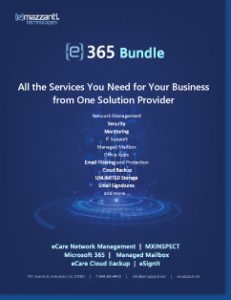 Collect on Debt: 5 Ways to Make Them Pay
Collect on Debt: 5 Ways to Make Them Pay
By Jeff Wuorio – Microsoft Small Business Center
You thought you had been so careful, so very prudent. A customer, perhaps even a supplier, seemed so above-board, so solvent, so trustworthy.
But you’ve been left high and dry. Maybe a client owes you money for products or services or a supplier has happily grabbed your cash without delivering the goods.
If visions of exorbitant attorneys’ fees immediately wash over you, stop and breathe. In many instances, there are ways to pursue legal action to collect what’s owed you without resorting to the tick-tock of a lawyer’s hourly rate:
Small-claims court This can prove a viable option for resolving many disputes, particularly if the dollar amount involved is relatively modest. In most states, all you need to do is contact the small-claims court in your area and ask for the necessary paperwork to file a claims action. It’s usually a rather simple procedure, and your court may provide information to help you get through the entire process. You file may provide information to help you get through the entire process. You file the paperwork, make certain the opposing party is served and the court sets a date to hear the case. Small claims offer several advantages. First, you don’t need an attorney to file the paperwork or even represent you in court. Moreover, filing fees are usually modest; for example, my court charges only $40 to process the paperwork. And the process is designed to move quickly. Decisions are usually handed down on the same day of the hearing. However, there are several nuances to bear in mind. For one thing, the amount you’re able to file for varies from state to state. For instance, in Maine, the maximum is $4,500 for a claim. In Michigan, the limit goes down to $2,800 per claim. Further, the onus is still on you to make your case, so you have to present evidence, documentation and other forms of adequate proof. “You’re charged with knowledge of the law in small claims court,” says David Chamberlain, an attorney based in Portland, Maine. “It’s not like ‘Judge Judy’ or ‘The People’s Court’ where they walk you through holding your hand.”
Mediation This type of dispute resolution can take a couple of forms. For instance, some small claims courts provide mediators. Rather than hearing a case, a judge may direct parties to work with a mediator to see if they can hammer out a settlement short of an actual court decision. In other cases, parties involved in a dispute may hire a mediator to help work out a suitable arrangement. Although mediation can also prove far less costly than formal legal action (fees are usually split) and much faster, it’s not 100% effective. A mediator is the conduit to smoother communication, but it’s up to the two sides involved to agree voluntarily to some sort of settlement.
Arbitration A variant of mediation, arbitration lets businesses in a dispute work with an impartial arbitrator to hear both sides of the case. Like mediation, the process is faster and more cost-effective than conventional legal channels; indeed, your Better Business Bureau might provide volunteer arbitrators. However, unlike mediation, it’s the arbitrator who hands down a decision, a final ruling that both sides are bound to honor. For more information about arbitration or to locate an arbitrator, check out the American Arbitration Association’s Web site (www.adr.org).
Collection agencies As you likely already know, collection agencies are businesses that can be hired to pursue debt collection. However, many collection agencies will only take cases that offer a reasonably good chance of success. Moreover, they can be pricy. “Some collection agencies will charge up to 50% of any amount they collect,” says Fred Steingold, author of “Legal Guide to Starting and Running a Small Business.”
Credit action If you’re unable to collect money owed to you, consider contacting your state’s credit bureau. They’ll provide you with the means necessary to make the bad debt part of your opponent’s credit record. While that may seem like cold comfort now, it may offer valuable leverage years down the line when a bank or other lender refuses the offender a loan because of the bad debt. That may prompt your less-than-reliable customer or client to make good on what’s owed you to clear up the credit report.
No matter which route you choose, you will need to know just how far to take things. For example, while many people may plead poverty outside the courtroom, pay close attention to what they say on the legal record. You’ll get a clear indication of just how much money your opponent actually has and whether you should go after the full amount. If there’s evidence of ample assets, pursue your fair share. However, if legal documentation shows little in the way of funds and an ex-customer offers you 50 cents on the dollar, it may be prudent to take what you can get.
It’s also critical to know when to bring in an attorney. For instance, if the money in question is substantial — say, beyond the purview of your state’s small-claims guidelines — an attorney might be worth the extra expense. Similarly, pay attention to your opposite number’s attitude, especially if there’s serious money at stake: “If you’re dealing with someone who’s obstinate or difficult, you may want to get an attorney involved,” says Chamberlain.
But if relatively little money is owed, and your customer is belligerent, it’s no disgrace to just let the whole matter slide: “Give some thought to just writing the thing off. In business, it’s often just as important to get the matter resolved and to get onto other things,” Steingold says.

Carl Mazzanti is Co-Founder and President of eMazzanti Technologies, Microsoft’s four time Partner of the Year and one of the premier IT consulting services for businesses throughout the New York metropolitan area and internationally. Carl and his company manage over 400 active accounts ranging from professional services firms to high-end global retailers.
eMazzanti is all about delivering powerful, efficient outsourced IT services, such as computer network management and troubleshooting, managed print, PCI DSS compliance, green computing, mobile workforce technology, information security, cloud computing, and business continuity and disaster recovery.
Carl Mazzanti is also a frequent business conference speaker and technology talk show guest and contributor at Microsoft-focused events, including frequent prominent roles at the Microsoft Inspire (Worldwide Partner Conference / WPC).
Carl, a serial Entrepreneur, gives back to the community through Entrepreneur teaching engagements at Georgetown University, the company’s ocean wildlife conservation effort, the Blue Project, and Tree Mazzanti.












